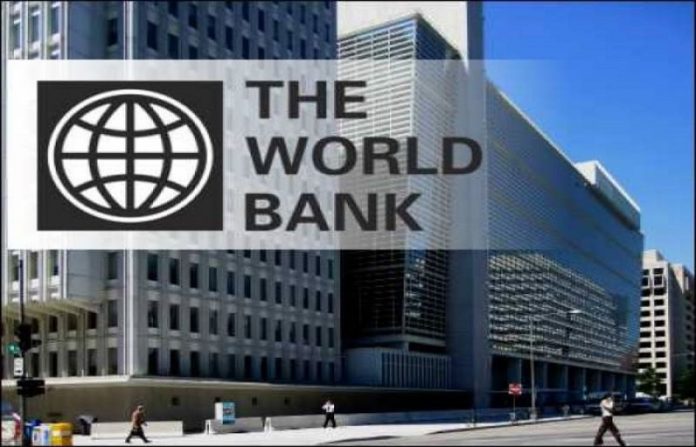By Jeph Ajobaju, Chief Copy Editor
Nigeria’s unemployment rate of 33.3 per cent is of great concern to the World Bank, saying it fuels insecurity North and South, which now prevents farmers from cultivating crops and stokes food price inflation.
The International Monetary Fund (IMF) has also alerted that Nigeria’s economic growth is hindered by rising unemployment.
Jesmin Rahman, who led an IMF team that held a virtual meeting with the Nigerian authorities, said even though the country’s economy is gradually recovering from the pandemic it is still hampered by a high jobless rate.
“Following sharp output contractions in the second and third quarters, GDP growth turned positive in Q4 2020 and growth reached 0.5 per cent (year on year) in Q1 2021, supported by agriculture and services sectors,” she said.
“Nevertheless, the employment level continues to fall dramatically and, together with other socioeconomic indicators, is far below pre-pandemic levels.”
The IMF forecast a GDP growth of 2.5 per cent this year, expects inflation rate to rise, but projects a slowdown of rising prices in Q2 2021 to reach 15.5 per cent.
Economic and security threats
The World Bank insisted that poor high unemployment poses both economic and security threats to Nigeria.
It made its remark in its bi-annual Nigerian Development Update, titled “Resilience through Reforms,” a report published twice yearly.
The World Bank insisted that “limited employment opportunities pose both economic and security challenges.
“As in other developing countries where informality is high, Nigeria’s official unemployment rate is a poor indicator of labour market outcomes because unemployed workers receive little public support and the incentives to remain employed are compelling, even in marginal activities that generate low returns.”
The World Bank added that despite agriculture being an employer of last resort, family farms absorbed excess labour during economic downturns.
However, it stressed, the periodic influx of displaced urban workers into the rural economy has kept agricultural wage rates low, generating uncertainty that discourages investment in productive capital.
“The informal service sector also provides employment, but it also typically offers low wages and limited job security or labour protection.
“In addition to their negative economic consequences, rising levels of unemployment and underemployment are both a cause and a consequence of conflict and insecurity.
“On the supply side, a combination of unfavourable weather, insecurity and conflict, and pandemic-related shocks affecting food production is pushing food prices up.”
The World Bank disclosed that due to the nature of the Nigerian economy, marginally employed workers become prime recruiting targets for criminal organisations and insurgent groups like Boko Haram.
Insecurity intensifies violence, according to the report, which further erodes the labour market, contributing to a vicious cycle of underemployment and instability.
“Creating adequate productive employment is thus a priority not only for economic policy but also for national security,” the World Bank urged.
Insecurity hampers food production
Data the National Bureau of Statistics (NBS) released on June 17 showed that inflation rate dropped for the second straight month to 17.93 per cent in May from 18.12 per cent in April.
Consumer price index (CPI), which measures inflation rate, rose 17.93 per cent year-on-year (YoY) in May, which was 0.19 per cent points lower than 18.12 per cent in April.
Food inflation, which dropped from 22.72 per cent in April to 22.28 per cent in May, the second consecutive decline. On a month-on-month basis, the food sub-index shot up 1.05 per cent in May, up 0.06 per cent points from 0.99 per cent in April.
Food inflation has been on the rise due to factors ranging from insecurity and transport to infrastructure.
Escalating insecurity, especially with the killing of farmers by herdsmen and other militia groups, has reduced food production.
Per Nairametrics, food inflation is a hot topic among Nigerians on Twitter.
“One year ago, one paint rubber of garri was N400 and the year before that, it was N350. As of today, it is N1,100. Garri, which for years we’ve called food for the poor man is definitely no longer for the poor,” one Twitter user wrote.
@Clarenceonyeks, asks: “What level of budgeting and financial literacy prepares you for Garri going from N450 a paint bucket to N1,500 in less than 18 months? What do you do in that situation if your salary is N52,000?”
Rising economic inequality has created an ecosystem where recruitment into non-state violent groups is an easy escape from poverty, which has created insecurity affecting farmers leading to food inflation.
Food, a factor of security
Akingbala Adetokunbo, an agribusiness and value chain expert with POSTERVILLAM, says food insecurity can be salvaged with all hands on deck.
“Food is national security. Food is craft. Food is everything when you think about it,” he said, quoting Jose Andres Puerta.
“People often ask why food availability is also a factor in insecurity. It’s because people would do literally anything to survive whether legitimately or not and in a country where justice is sold to the rich and powerful, the fair application of the law is subjective.”
Adetokunbo said the food crisis is exacerbated by the pandemic and Abuja’s “lackadaisical attitude to resolving herders and farmers problems.”
He warned that Nigeria’s agriculture is buffeted by a lack of policy direction on productivity per hectare with an export-focused goal.
“The country is also low on mechanisation with the ratio at 1:6000 hectares and mostly 75HP or lower,” he added.
According to him, due to the pandemic and insecurity, land cultivation has declined from 70,000 hectares to less than 7,000 hectares, meaning less production of grains like maize, soybean, and sesame seed; and spices like pepper and tomatoes.
Adetokunbo urged the government to fight insecurity because Nigeria is on the brink of famine, as farmers, especially smallholder farmers who constitute the major block, have stopped cultivating crops.
“Can we pull back from this? Yes! Timeline with all hands on deck? 30 months, and please, let’s not go the Anchor Borrowers’ Programme route, the civil service will truncate any policy no matter how well thought out and its intentions.”













